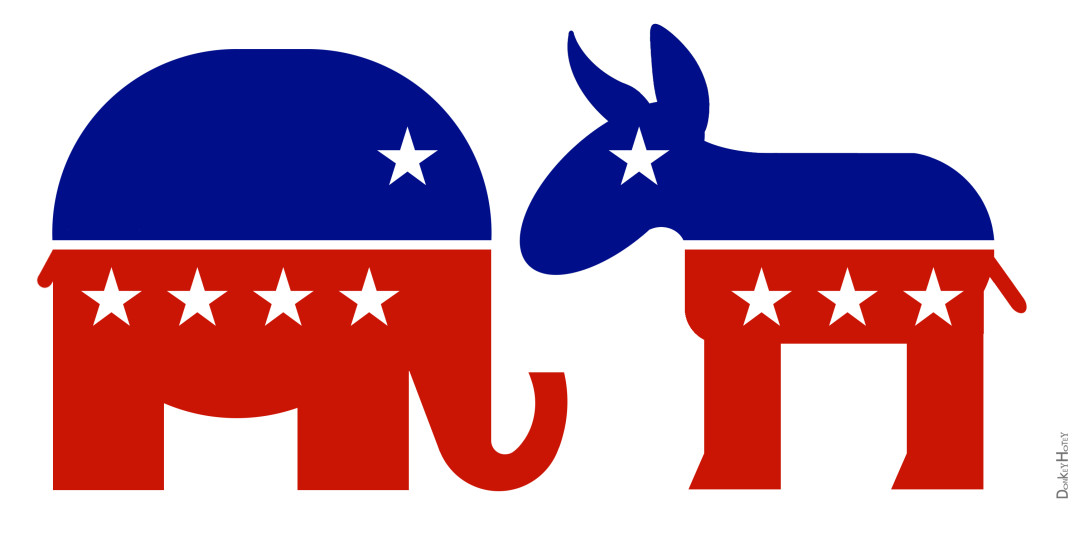Judge Jackson’s recent confirmation hearing raises a variety of questions about the nature of judicial philosophy and what relationship it has with judicial “methodology.” In her opening statement, Judge Jackson outlines a three-step methodology to how she approaches each case: to clear her head, to examine the data, and to apply the relevant laws if it is her job. When pressed and questioned about what her philosophy is, she candidly maintained her judicial philosophy is her judicial methodology.
This has received a variety of attention. Some think her response is indicative of her defying being labeled by others. Others think she is required to give us her judicial philosophy, that her methodology is the bare minimum of what to expect from a judge. Indeed, some were analyzing and predicting what the judicial philosophy would be based on her previous remarks and experience.
While Judge Jackson’s response has been a highlight of Republican criticism, it would be rash to infer this question is pointless, a divisive tactic asked for the sake of moral grandstanding. It is worth addressing the nature of one’s judicial philosophy, its importance, and asking whether it is equivalent to a methodology.
Let us presume that a judicial philosophy comprises the values and stance from which one sees and evaluates judicial cases. In this way, a judicial philosophy is value-laden and often prescriptive of how to interpret the law and act. In contrast, a methodology is often only descriptive. This gives the impression that a methodology is fair, insofar as it does not necessarily subscribe to values and prescribe responses.
This distinction maps onto our standard use of the terms and some intuitive examples. Consider how an ethical philosophy not only describes but evaluates as well as prescribes certain actions. For instance, deontology describes and evaluates actions according to the well-known categorical imperatives, the rule of universalization, and the intrinsic value of rational agents. When the deontologist maintains “Don’t lie,” it is based on a value of rational agency and is universal in its scope and demand.
A methodology, in contrast, is procedural. Much like the surgeon who must conduct several steps to perform surgery, a methodology describes the steps of parsing data and conducting certain actions. Moreover, while a methodology evaluates appropriate actions according to the issue at hand, a methodology does not have certain prescriptions built-in (aside from, perhaps, the general prescription to act in accord with the role one stands in; consider how the Hippocratic Oath is an imperative to do no harm). Where a scalpel is required in some situations, an IV is required in others — it depends on the patient’s need.
If this distinction is plausible, then it follows that a judicial methodology and judicial philosophy are not equivalent. This is not to say, however, that the two cannot overlap. For every judicial philosophy can avail itself of a methodology, and vice versa. So, we need some clarity on what Judge Jackson means when she maintains her philosophy just is her methodology.
Would it be a problem to only maintain a judicial methodology without a judicial philosophy? At first blush, it would seem like a fortunate state of affairs if the judge were to be impartial like the surgeon with a methodology. One might argue by analogy that the judge collects the relevant data with a clear mind and applies the relevant tools according to the need. If the brain surgeon is not trained and equipped to conduct heart surgery, one would hope he denies the request to operate and calls his colleague! So too with the judge. Impartiality, after all, is necessary for a judge to be just.
Indeed, this cleanly depicts how Judge Jackson describes her own three-step judicial methodology in more detail:
- Remain neutral: to proceed “without fear or favor.” Before approaching any case, she clears her head of biases and prejudices.
- Evaluate the data: to receive all of the appropriate inputs for the case (e.g., hearings, factual records, etc.)
- Apply the law: to exercise the “Interpretation and application of the law to the facts in the case, and this is where I am really observing the constraints on my judicial authority.”
Regarding this last step, she may look at her jurisdiction to see if it is her place to hear the case. Like the surgeon who coolly evaluates cases and responses, one might think Judge Jackson’s methodology is sufficient for her role as a judge.
However, the surgical analogy fails on precisely the points it should help. On the one hand, it is questionable that both the surgeon and judge may coolly evaluate data. Does not collection of data require an evaluation of the case’s salient features? It would seem so, though perhaps this is a common problem. If so, it would be what I like to call a ‘work hazard’ for simply engaging in this activity and thus not uniquely problematic to this particular issue. On the other hand, the respective standards which the surgeon and judge consult and the corpus to which they apply these decisions are different. For the Constitution is not self-interpreting and is far from clear at many points. For example, whose right is it to bear arms? Moreover, the application is also an issue. For example, does the prohibition of ‘cruel and unusual’ punishment preclude the death penalty today? Both of these issues of interpretation and application require values to guide the judge.
To illuminate how a judge might offer different sentences based on different judicial philosophies, consider two prominent philosophies:
Originalism: Interpreting the legal text(s) according to the words and original context, most prominently the original author’s meaning and public understanding of the text.
Prudentialism (also known as pragmatism): Interpreting the legal text(s) according to the respective values and interests at play at the time of the case (Justice Breyer, whom Judge Jackson is to replace, exercised this methodology).
Based on the philosophy, one will have different answers to the above questions. According to originalism, “cruel and unusual” punishment might not preclude the death penalty. In other words, this could lead a judge be open to giving a sentence of the death penalty. Based on prudentialism, “cruel and unusual” may very well preclude the death penalty. Individuals’ sensibilities of what counts as cruel may differ from the original authors (e.g. are there really any “humane” methods of executing a human?) In other words, this could lead a judge to avoid such a sentencing. Indeed, based on the sharp decrease in numbers of executions since ‘99, there is good reason to think that sentimentality has shifted for what classifies as “cruel.”
I would suggest, then, that a judge not only ought to have a judicial philosophy but is required to have a judicial philosophy. A judge ought to have a judicial philosophy because it is both an obligation of the role and prudent to make explicit one’s values and interpretive methodology. A judge is required to have a judicial philosophy if only out of operational necessity. The Constitution and law must be interpreted and applied, and to take a stance on ‘no judicial philosophy’ is perhaps to take a stance on a nascent philosophy.
We could, of course, attempt to deduce Judge Jackson’s judicial philosophy. Some have pursued this route – she clearly maintains that “adherence to text is a constraint on my authority. I’m trying to figure out what those words mean as they were intended by the people who wrote them.” While such comments as this may be indicative of an originalist position, I find it more helpful to see how Judge Jackson’s minimal position is prudent and not unprecedented.
Judicial philosophies can unnecessarily be understood to signal a political philosophy. If offered in this forum, her position could very well be misunderstood and utilized to characterize her in different ways. This would not be unlikely, given some of the grandstanding and loaded questions from many senators. And Judge Jackson was admirably keen to avoid these issues and “stay in her lane.” So, regardless of whether a candidate is obliged to inform the committee or public of her position, it seems to be cautious in some respects.
Such a brief response is also not unprecedented. Consider, for example, Justice Sotomayor’s opening statement for her hearing before the Judicial Committee. When describing her judicial philosophy, Sotomayor stated that it’s
Simple: fidelity to the law. The task of a judge is not to make law, it is to apply the law. And it is clear, I believe, that my record in two courts reflects my rigorous commitment to interpreting the Constitution according to its terms, interpreting statutes according to their terms and Congress’ intent, and hewing faithfully to precedents established by the Supreme Court and by my Circuit Court.
Justice Sonya Sotomayor
It could very well be that this is a stock and trade answer for such a forum. Moreover, it is an intentionally minimal answer and thus, a cautious maneuver.
For all the prudence and precedence, however, the point stands: a judicial philosophy is distinct from methodology, and the former is necessary for a judge. While a judicial philosophy is perhaps part of a judicial methodology, it will not be the whole parcel.


